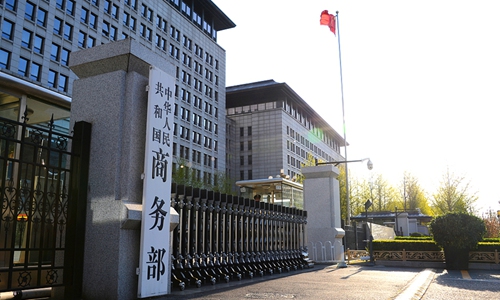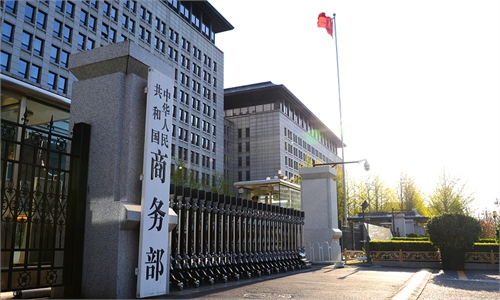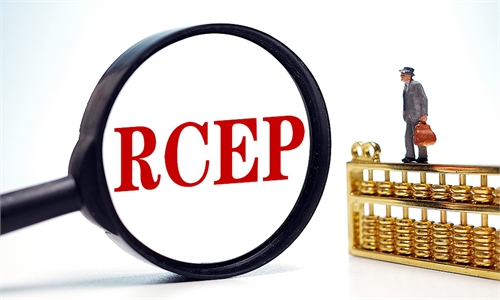
The Ministry of Commerce (MOFCOM) Photo: VCG
China's import and export magnitude has far exceeded the same period last year, with the growth rate hitting around 20 percent compared with the same period in 2018 and 2019 before the COVID-19 outbreak, according to the spokesperson with the Ministry of Commerce (MOFCOM) on Thursday.Since last year, in the face of the impact of COVID-19, China's innovative foreign trade policies have continued to exert force, which played an important role in reducing costs, preventing risks, and expanding the market for domestic foreign trade enterprises, Gao Feng, the ministry spokesman, said at a press conference on Thursday.
While such a significant outcome was the result of the joint efforts in partnership with industry participants, government policy played the essential part in easing the business pressure in hard times.
The results of a recent survey by the MOFCOM involving more than 20,000 foreign trade enterprises in China suggested that the business orders of enterprises have improved compared with last year.
Around half of those who participated in the survey said that they have benefited from policies and measures such as tax and fee reductions, export tax rebates and trade facilitation programs, according to the MOFCOM.
However, disruptive factors remain for the Chinese foreign trade throughout 2021, with uncertainties from the global outbreak, the supply chain and the trade complex, industry insiders said in the report.
Gao said that shipping rates are hovering at high levels, the lack of capacity and other factors affect enterprises from receiving orders. Other factors such as rising raw material prices resulting in higher production costs and the employment difficulty in some areas are still relatively prominent.
The ministry will pay close attention to the development of the situation, maintain policy continuity, stability and sustainability, and improve relevant trade policies, Gao said.


